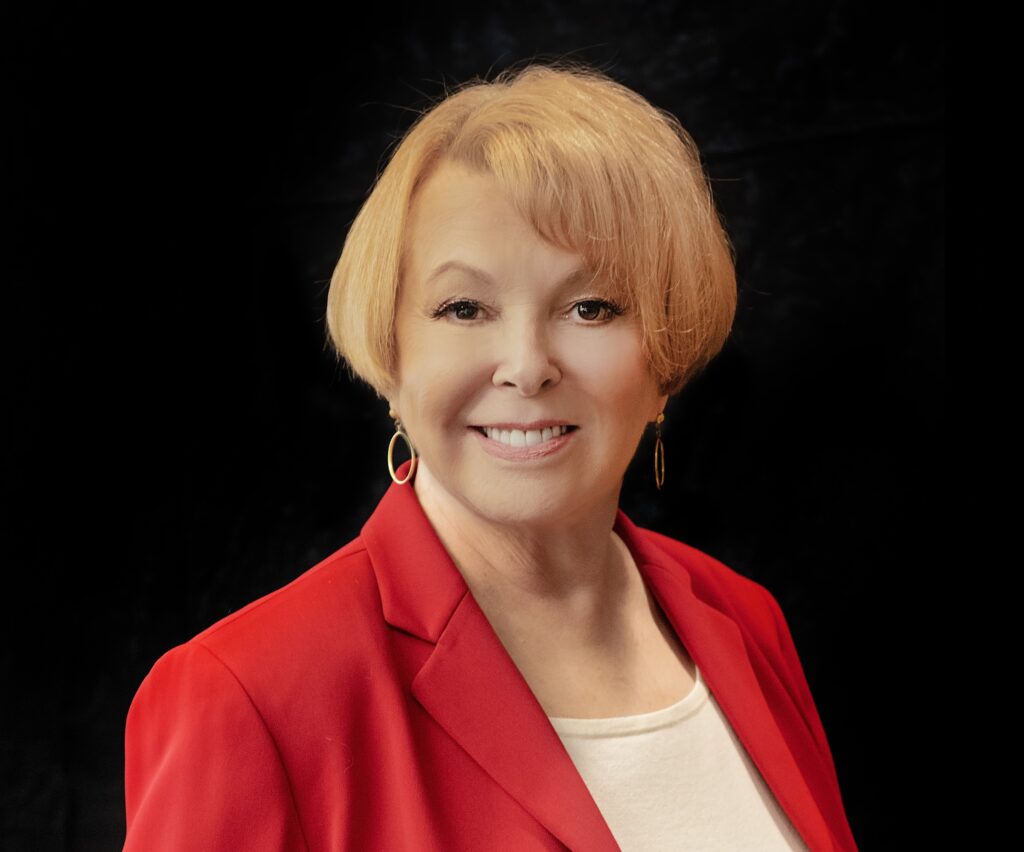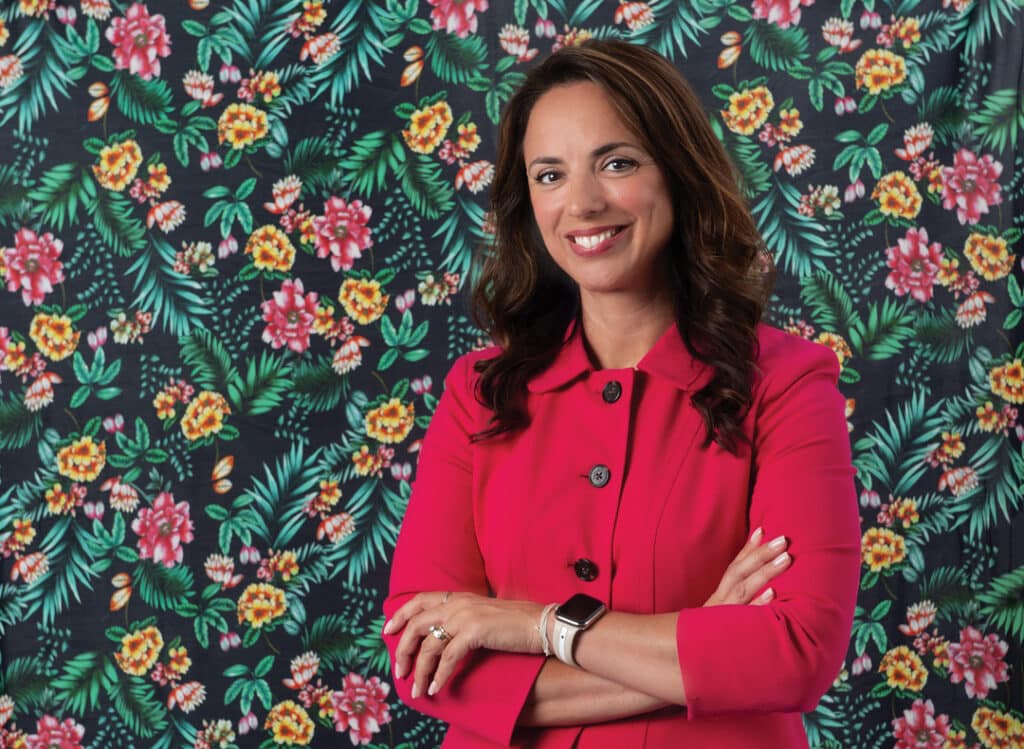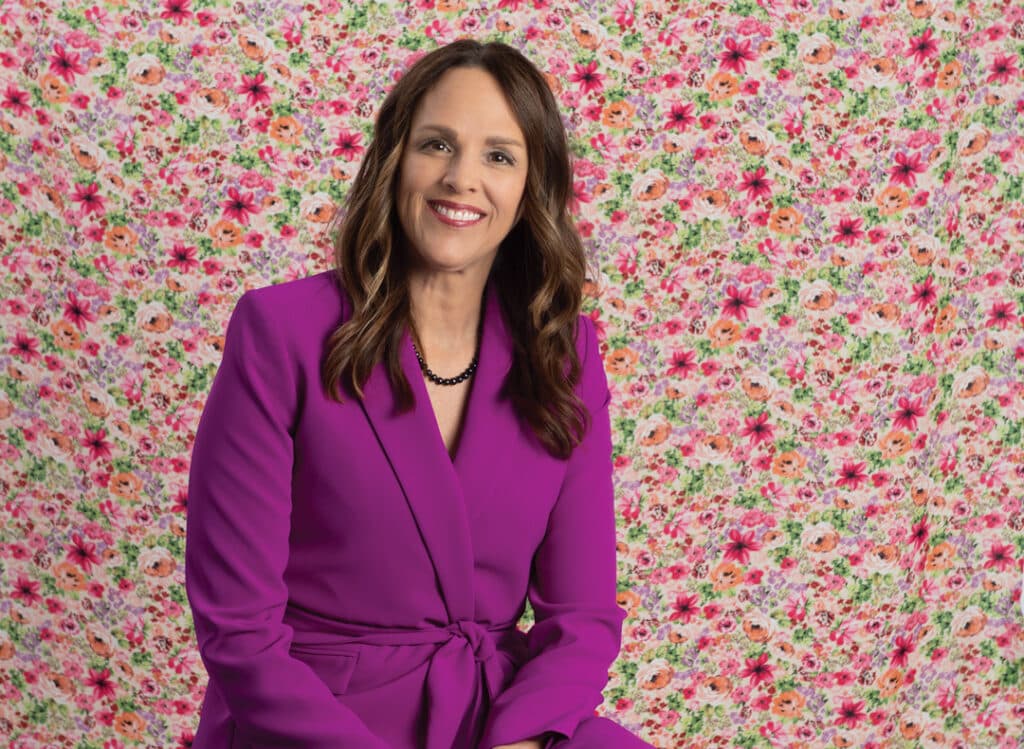Women of Influence Class of 2007

Women always have been influential, of course. But in 21st-century America, women are stepping into prominent corporate, political and public-service roles at an ever-faster pace.
Central Iowa continues to benefit from the trend, and since 2000 the Des Moines Business Record has honored its female leaders each year. For 2007, nine honorees have been named Women of Influence: Judy Bradshaw, Mary Brubaker, Alicia Claypool, Debbie Hubbell, Mary Lawyer, Kaye Rogerson Lozier, Sue Savage-Rumbaugh, Marsha Ternus and Marcia Wanamaker.
Also, we have added a new dimension this summer by naming the first Woman Business Owner of the Year. We selected Cyril Ann Mandelbaum for that honor, and her story leads off our reports on 10 truly influential women.
The public is invited to attend a reception in their honor on Aug. 14 at the Des Moines Marriott Downtown, 700 Grand Ave. The event is scheduled to run from 4:30 until 7:30 p.m., and the presentation of honors begins at 5. Admission costs $20.
Des Moines Area Community College, Mercy Cancer Center and Katzmann Breast Center, United Way of Central Iowa and Wellmark Blue Cross and Blue Shield sponsor the event.
| 1 Kaye Rogerson Lozier | 6 Mary Brubaker |
| 2 Marcia Wanamaker | 7 Judy Bradshaw |
| 3 Alicia Claypool | 8 Mary Lawyer |
| 4 Cyril Mandelbaum | 9 Marsha Ternus |
| 5 Sue Savage-Rumbaugh | 10 Debbie Hubbell |
Cyril Mandelbaum
Cyril Ann Mandelbaum doesn’t take many new clients; she stays busy enough with the ones she has cultivated over the past 35 years. The Cheyenne, Wyo., native started her own business in Des Moines at the age of 25 and, with the exception of about a year and a half spent with a corporation, has been her own boss ever since.
And she’s done that in a field where you find very few women owning a business or holding a top-level management job.
In recognition of her groundbreaking efforts and success, the Business Record chose Mandelbaum as its first Woman Business Owner of the Year.
Along with a staff of two full-time certified public accountants and a part-time paraprofessional, Mandelbaum specializes in tax work, business valuation and litigation support at the company that bears her name.
She always liked working with numbers and thought she would become an engineer. “My dad was so empowering,” Mandelbaum said. “He told me, ‘You can be anything you want.'”
However, after her first year at the University of Colorado as an engineering student, she switched to the business school. She met John Mandelbaum during her college years, and they married the day after graduation. Then they were off to Des Moines, and she set out to find work.
Mandelbaum was turned down by a Big Eight accounting firm, then became the only woman on a staff of about 70 at Peat Marwick. Three years later, “after realizing that the opportunity for women to advance at Big Eight accounting firms was limited,” she started her own company.
That gave her the chance to work from home while her three sons were small. In 1985, when the youngest began a full-day school schedule, Mandelbaum moved her office to the Financial Center in downtown Des Moines. She remained there until moving to 4500 Westown Parkway in West Des Moines last year.
Her office area, sporting one vivid wall color after another, adjoins her husband’s real estate office.
In some ways, Mandelbaum said, the accounting field hasn’t changed much. “There are not too many women doing business valuation,” she said. “And I don’t know of any other women in Des Moines who are litigation accountants.” The field is more open to and populated by women than it was 35 years ago, but she says discrimination remains.
“The accounting classes are 50/50” in terms of gender, but “management isn’t that way, not by a long shot,” she said. “There are still some people who don’t want to do business with a woman.”
Ironically for someone who has battled for gender equity, her name is often mistaken for a man’s name by people who haven’t met her. Cyril comes from her grandmother’s Hebrew name, Tsyril.
Mandelbaum has done her part to help young women get onto a sound career track by serving as a mentor. For a dozen years, she and other businesswomen met several times a year with young women at Lincoln High School.
She has also served in volunteer and appointed positions for a number of organizations, including the Iowa Capital Investment Board, Gov. Tom Vilsack’s Council of Economic Advisors, the Nexus Women’s Breakfast Club and the reorganized Central Iowa Employment and Training Consortium board.
“I’ve always volunteered, my whole life,” Mandelbaum said. “I think we each have an obligation to make the world a better place.”
Judy Bradshaw
She graduated from Ankeny High School with a teaching career in mind, but then Judy Bradshaw spent the summer working part time at the Ankeny Police Department. “Not a whole lot went on in Ankeny back then,” she said, “but I was fascinated.”
So she took a class in probation and parole at Des Moines Area Community College, then classes in law enforcement, and before long she was on her way to a career in police work. The decision paid off in a big way this year when she was named chief of the Des Moines Police Department.
The fact that she’s the first woman in the job is big news, but Bradshaw has long understood how to excel in the male-dominated field of law enforcement. “Early in my career, when I would walk into a room, it would make the men uncomfortable,” she said. “When I was young, I felt somehow responsible for their attitude. But at some stage, through maturity and experience, I realized I have a right to be at the table. I’m not responsible for someone else feeling comfortable.”
Bradshaw received an associate’s degree from DMACC in 1980 and began working as a cadet that year. She later added bachelor’s and master’s degrees from Drake University.
During the 27 years since joining the department, Bradshaw has acquired a wide range of experience, starting with patrol duty and going on to work in vice and narcotics, public information, traffic and the detective bureau. The most interesting days, she says, took place on patrol duty. But it was her stint as the department’s public information officer that really raised her profile in the community.
From 1993 to 1996, “I did close to 1,000 speaking engagements,” Bradshaw said. “I was asked to join a lot of groups and to speak. What I was saying must have resonated.”
Her rise through the ranks was accompanied by participation in countless workshops and seminars, covering topics from street gangs to homeland security issues. She also served as an adjunct professor at DMACC from 1993 to 1996 and for the next 10 years at Grand View College.
“Throughout my career, I’ve always done several things at one time,” Bradshaw said. “When I got a new assignment, I would also do two or three training things connected with it, and I’ve also tried to seek out training outside my assignments.”
Bradshaw, 48, will be eligible to retire at 55, and she said many police officers and executives “probably should” take that step. “The job chews you up and spits you out,” she said of police work in general.
As she mentored young women at Grand View, Bradshaw told them: “If you’re a minority in the work environment, you do have some control over how you’re going to be talked to. If you contribute to something you normally wouldn’t agree with, you’ve lowered your standards.”
Even now, during the course of her duties Bradshaw is often the only woman in the room. “That will change,” she said. “By design.”
Mary Brubaker
Trying to fit all the reasons Mary Brubaker should be honored as a Woman of Influence into a single letter “is like trying to look at the stars through the lens of one telescope,” says Jan Kaiser, marketing manager of the Des Moines Public Library.
Brubaker, best-known to many Iowans for her nearly 30-year career as a talk show host on KCCI television and annual host of the local telecast of the Muscular Dystrophy Association Telethon, hasn’t slowed down a bit since retiring from the small screen in 1995. As a volunteer, fund-raiser and advocate for dozens of local charitable organizations, Brubaker commits the same high energy and passion to making Central Iowa a better place to live.
Brubaker volunteers for dozens of charitable organizations, among them the Chrysalis Foundation for Women, VSA Arts of Iowa, the Drake Neighborhood Association and the Alzheimer’s National Campaign.
“Mary is one of those unique individuals who get involved in the issues, rather than just talking about them,” Kaiser wrote in a nomination letter. “Mary is there and she usually has someone to introduce to someone else, (or knows) who can help with this or serve on that committee. She is an indefatigable networker and certainly a woman of influence.”
Of the many famous people she interviewed during her broadcasting career, one who made a particular impact on her life was anthropologist Margaret Mead, who said, “Never doubt that a small group of thoughtful, committed citizens can change the world. Indeed, it is the only thing that ever has.”
That statement “has materialized in my life over and over again,” Brubaker said. “When I first heard it, I thought, ‘Well, that sounds nice, but does it really work?’ … I’ve seen it happen many times now where a small group can make a difference.”
Brubaker is a longtime volunteer for the AIDS Project of Central Iowa. She works with schoolchildren through the Chrysalis After School program and through the United Way of Central Iowa’s Speak Up program.
She has served on the board of the Iowa Reading Service for the Blind and as a reader. She also serves on the steering committee of Save Our Schools, a fiscal watchdog for the Des Moines public schools.
The Drake University alumna has produced, directed and acted in numerous productions for the Des Moines Playhouse and the Drama Workshop and has taught public speaking for Drake’s Women’s School.
“Mary is so accomplished in many areas,” wrote former Gov. Robert Ray and his wife, Billie, in nominating her. “Yet Mary is best known and we feel most dedicated to benefiting the lives of people in need.”
Alicia Claypool
In the history of civil rights advancement in Iowa, 2007 will be remembered as a significant year. It also has been a year of personal achievement for Alicia Claypool, a longtime advocate and defender of civil rights.
As chairperson of the Iowa Civil Rights Commission, Claypool was instrumental in helping to pass legislation that on July 1 outlawed discrimination based on sexual orientation or gender identity in Iowa. She also spearheaded legislation that prohibits bullying in the public schools based on race, ethnicity, sex, religion, disability, sexual orientation or gender identity.
“Imagine in this day and age, we’re fighting around the world for freedom, and at home, some of our own citizens were being discriminated against,” Claypool said. Claypool, who earlier this year was appointed to her third term on the commission, has served as its chairperson for the past two years. She also founded the Interfaith Alliance of Iowa in 1995 and served as its executive director from 1997 to 2000 and again in 2002.
“She’s a leader not only in the community and the state but in the world for civil rights,” said Ralph Rosenberg, executive director of the Iowa Civil Rights Commission. “I think our credibility as an administrative agency has improved. … Alicia’s leadership has contributed to a much stronger position of the commission as an agency.”
Claypool organized the Interfaith Alliance of Iowa in 1995 in response to concerns held by her and other residents about candidates who were running in both the Des Moines mayoral and school board races, and in preparation for the 1996 presidential caucuses.
Earlier this year, she received a distinguished service award from her alma mater, Illinois College. Last year she was honored with the Governor’s Volunteer Award and the Interfaith Achievement Award from the Interfaith Alliance.
“I always wanted to help people,” said Claypool, who early in her career considered becoming a special education teacher. Her mother, a native of Cuba who married an American soldier and came to the United States, had just an eighth-grade education. “I always felt fortunate that I lived in a country like the United States, where everyone can get at least a high school education,” said Claypool, who has a bachelor’s degree in psychology and elementary education and a master’s degree in urban planning.
Besides enabling the state to tap into a more diverse work force, expanding Iowa’s civil rights laws will also benefit the state as a whole, Claypool said. “The more interesting and diverse we are, the better for our kids, because every moment from this day forward, we will be a more diverse state.”
Debbie Hubbell
During this June’s Principal Charity Classic, Debbie Hubbell and other members of the Women’s Leadership Connection brought several of the professional golfers’ wives to Capitol Park Early Learning Center. The women seemed hesitant to interact with the children at first, Hubbell said, but by the end, each one was reading a book to a group of children and engaging them in conversation.
Experiences like this inspire Hubbell to continue her mission of ensuring that every child is prepared for school, which she became passionate about through founding the WLC.
In 2002, United Way of Central Iowa brought 15 women together to discuss community issues and how to get women more involved. These women decided to focus on early childhood education by better equipping preschools and day-care centers with learning materials and better educating instructors. Hubbell was one of five women who gave a lead donation of $2,500 that day and has since been a leader in what became the WLC.
She now serves on several of its committees and is co-chairing the 2007 fund-raising campaign. As co-chair of last year’s campaign, she helped attract 218 lead donors.
“[The WLC] has become a model all over the nation for women coming together and focusing on an issue, raising money and making a difference,” Hubbell said. “There are so many generous people in the community, but the power of all these women uniting and not only giving money, but being focused on one issue that’s so important … it’s so compelling to me.”
Being this involved in community efforts is not new to Hubbell, who has made a 25-year career out of volunteering in arts and education programs.
Before that time, her career was “kind of checkered,” said Hubbell. After receiving a bachelor’s degree in theater from Saint Mary’s College in Notre Dame, Ind., and a master’s degree in speech pathology from Ball State University, the Denver native decided to go into publishing instead. She eventually became group publisher of three publications before she and her husband, Michael moved to Des Moines so that he could work for his family’s company, Hubbell Realty Co. Debbie Hubbell found a job as marketing director for Des Moines Ballet and later left to be a full-time mother. For four years, Hubbell also sold residential real estate with First Realty.
As her children became old enough to attend school, Hubbell shifted her volunteer focus from arts to education. She developed “the Literacy Army,” a volunteer reading program that worked with children in kindergarten through third grade who were reading below grade level.
Now Hubbell is a spokeswoman for early childhood education, presenting at the United Way Women’s Leadership Summit and other conferences. She is part of Polk County’s Early Childhood Partnership and Early Childhood Iowa. She also serves on the boards of directors of United Way, the Des Moines Playhouse and the Chrysalis Foundation.
“I just feel really fortunate that this is what I can do for a career,” Hubbell said.
Mary Lawyer
This small-town native has been making big strides in Iowa’s largest city. As president of the Downtown Community Alliance, Mary Lawyer is leading the effort to ensure that downtown continues to thrive.
Yet, Lawyer points to her 15-year career at the Iowa Department of Economic Development for her greatest achievement. She championed the creation of the Grow Iowa Values Fund, which meant working through three legislative sessions, complicated board procedures and political infighting, she said. But this $500 million economic development program has funded 448 projects, creating 33,757 jobs and generating $10.8 billion in capital investment since July 2003. Lawyer also served as director of the IDED for more than a year, overseeing an annual budget of about $130 million.
“I’ve always been more jazzed about business expansion,” Lawyer said. “My philosophy has always been that business growth drives everything else.”
Lawyer graduated with a degree in business administration from Iowa State University, intending to become a bank loan officer. Instead, she moved to Manly in Northern Iowa to marry a farmer. There she found a job as an employment-training specialist at North Iowa Area Community College in Mason City. A year later, Lawyer realized she was better suited to an administrative role, so she became an adult services coordinator for the college, overseeing programs administered by the IDED.
In 1990, the state agency offered her a position as field administrator for Northern Iowa. She also began taking on special projects, spending part of her time in Des Moines. When Lawyer’s son became old enough to start school and she divorced her husband, she took a Des Moines-based job with the IDED, focusing more on business expansions and start-ups. From there she worked her way through the ranks to director, where in addition to the Values Fund, she helped set up incentives for biofuel production and establish the Vision Iowa Board.
At the DCA, she has been involved in a marketing campaign and has been a leader in drafting a new vision plan for downtown. When the plan is completed this fall, the DCA will work towards some of its goals, such as providing better public transportation and better connecting the skywalk system to the street level.
“Those are the sort of items that are probably harder to get done,” Lawyer said. “They are not things a company puts their name on, but they are things that are going to make us even more urban than we are now.”
Lawyer also is working on a master’s degree in business administration through the University of Iowa’s Tippie College of Business. “I like being more on the private side,” Lawyer said, “so we’ll see where this leads.”
Kaye Rogerson Lozier Kaye Rogerson Lozier knows how clout and persuasion work in Des Moines. She grew up here, graduated from Iowa State University and raised her five children here. (She and her husband, Dick, now have five grandchildren as well). She began learning Iowa’s political landscape early in her career, having worked as a researcher for Iowa Senate Republicans. She also was an administrative assistant to the president of the Iowa Senate, an assistant to state Sen. Mary Kramer and a member of the state Senate Republican Caucus staff.
A former high school teacher for the Cedar Rapids School District, Lozier also is keenly interested in the health and education of the next generation of Iowans. In 1988, she joined the board of directors of the BWA Foundation, which makes grants for building and equipment to child welfare and cultural organizations. Lozier has been on the board of the Chrysalis Foundation, which supports the education of women, since it was founded in 1998. The foundation focuses on the needs of low-income women and includes an after-school program among its forms of outreach. The governor appointed Lozier to the Iowa Youth Task Force in 2000.
Her community involvement has been wide-ranging, encompassing the health, educational, cultural and financial sectors. Lozier has been a community child advocate for Blank Children’s Hospital. She was the first female president of the board of the YMCA of Greater Des Moines, served as a vice chair of the Des Moines Planning and Zoning Commission and is currently a member of the Restoration Ingersoll Planning Commission.
Her interest in the arts led her to become a board member of the Des Moines Ballet Association and the Des Moines Community Playhouse. She became the development director of the Greater Des Moines Community Foundation in 2005, helping residents figure out how to invest their donations in charities that meld with their personal passions.
“Des Moines is a very strong giving community, and we’ve gotten very good at identifying needs,” Lozier said.
Most residents she works with want to donate money for one of the following efforts: improving quality of life, education, workforce development, community college training, arts and culture, and environmentalism.
Although Iowa is not usually seen by outsiders as a state that embraces green issues, Lozier has witnessed growing interest in ecology issues among Des Moines movers and shakers.
“The Iowa Natural Heritage Group and the growth of the biodiesel industry have sparked more interest than ever in environmentalism,” Lozier said.
Her latest adventure? “Reaching out to the next generation of major donors – the sons and daughters of our current donors,” Lozier said. “I think they are seeing that donating money and time – involvement and engagement – can actually be fun.”
Sue Savage-Rumbaugh
Dr. Sue Savage-Rumbaugh is one of the first scientists on earth to study how bonobos, a species of chimpanzee, use language among themselves and other species, including humans. She conducts her seminal research for the Great Ape Trust of Iowa on a 230-acre Des Moines compound.
“They don’t have the same kind of voice box humans have, so we had to develop another way for them to communicate,” Savage-Rumbaugh said.
The solution she crafted is called a lexigram – a board covered with 384 symbols, each representing a word. The bonobo can speak by pointing to symbols that substitute for words he or she wants to convey. Some symbols represent actions or what can be touched or seen, like burritos, other bonobos, water, or Savage-Rumbaugh herself. But other symbols stand for moods or concepts such as “yesterday,” “secret” and “pretend.”
“They can now use over 400 symbols and are capable of understanding far more auditory words than that,” Savage-Rumbaugh said. “They can signal that they are happy or sad.”
The bonobos can form complete sentences by pointing to the symbols. When she and her former husband began their research, no one knew whether chimpanzees were capable of the linear logic required for sentences.
Savage-Rumbaugh met her husband through research. Although she and her husband have been divorced for about 10 years, they continue to work on research projects together.
“Early on in her work as a scientist, she was often met with skepticism,” the renowned scientist Dr. Jane Goodall wrote in her letter nominating Savage-Rumbaugh as a Woman of Influence. “Nevertheless, she was able to overcome this.”
Just like humans learning a second language, apes find it easier to learn the symbolic language when they start studying as children rather than adults.
Savage-Rumbaugh joined the Trust after 30 years with Georgia State University’s Language Research Center, where she worked with eight bonobos. She brought that group with her to Iowa’s Great Ape Trust. When the facility is completed, it will be the largest in North America to house bonobos, chimpanzees, gorillas and orangutans.
Savage-Rumbaugh is currently working on two books about how mother apes communicate with infants and how apes make and use tools. Goodall praised her research for showing that the tools apes fashion are very similar to those made by prehistoric humans.
“Understanding how apes acquire communication skills helps humans realize how we become what we are in terms of personality, character and ethics,” Savage-Rumbaugh said.
Marsha Ternus
Marsha Ternus has served on the Iowa Supreme Court since 1993. Last September, the members of the court selected her as chief justice, making her the first woman to hold the highest position on Iowa’s highest court.
Nearly a year later, Ternus said the opportunity to have a positive influence on the state where she was born and raised is fantastic.
“That’s the best part,” she said. “To see something that could be better and to be able to do something about it is wonderful. If you’re going to complain, you should do something about it. So it’s nice to be able to complain.”
Ternus, 56, is a native of Vinton. She received her bachelor’s degree from the University of Iowa in 1972 and her law degree from Drake University in 1977. While at Drake, she served as editor-in-chief of the Drake Law Review.
Before being appointed to the Supreme Court, she worked for the Des Moines law firm of Bradshaw, Fowler, Proctor and Fairgrave P.C. While in private practice, she served as president of the Polk County Bar Association, on the Board of Governors of the Iowa State Bar Association, on the Iowa Jury Instructions Committee and on the Board of Directors of the Polk County Legal Aid Society. She also served as president of the Board of Counselors of Drake University Law School.
In addition to her duties as a Supreme Court justice, Ternus has worked on a number of court initiatives and other efforts to improve the administration of justice. She served as the judicial branch representative on the IOWAccess Advisory Council, on the judicial team that oversaw the design, development and construction of the Judicial Branch Building, on the steering committee of the Iowa Supreme Court Commission on Planning for the 21st Century and as co-chair of the commission’s administration team. She also served on the Multi-State Performance Test Policy Committee of the National Conference of Bar Examiners.
However, she said she’s not much of an “organization” person. “I volunteered a lot of my time in my younger years,” she said. “Before my family.”
Now her family is her main passion. “Outside of work time is family time,” she said. “I don’t like to do anything that takes more time away from them than I have to.”
She enjoys spending time with them however she can, including family dinners, watching movies or playing cards. “Nothing too extravagant,” she said. “Most of the time it’s a simple dinner. Sometimes I’ll get the fancy dishes out and cook something up I saw on the Food Network.”
When she retires, Ternus said she has no plans to keep working in the field of law.
“I just don’t see the fun in doing legal work after I’ve retired,” she said. “I think I want to do something fun like go work at a Barnes and Noble.”
But retirement is still a long way off, she said.
“I love what I’m doing,” Ternus said. “I really do. But once I’ve done that, I want to try something else. And the list of things I’m going to do one day gets longer and longer.”
Marcia Wanamaker
Marcia Wanamaker offers one reason for why she has always felt that giving back to the community is something she has to do.
“My mother,” she said. “We did not have a lot of money growing up. We had some really rough times. But she always did what she could to help those with less than us. And she made sure we knew that’s how you are supposed to live.”
That is why Wanamaker has become involved in groups such as the Junior League of Des Moines, the Iowa Homeless Youth Shelter and the American Heart Association.
“I love this community, and I want to give back to it,” she said.
Another thing her mother instilled in her was a good work ethic, she said.
“I had two jobs in high school,” she said. “She had four kids and every one of us is a worker to this day.”
That work ethic has led to a successful career as a Realtor with Iowa Realty. Since joining the company in 1988, she has been the annual sales leader twice, she said. Twelve times she was beaten by her biggest rival – her husband, Rick.
“If I’m going to get beat, I’m glad it’s him beating me,” she said.
Wanamaker said she sees her role as an ambassador for Des Moines, making sure people not only fall in love with a prospective home, but also with the community the home resides in.
“If you know a community, and you love a community, you can sell that community,” she said. “People come here from all over, and they are surprised at how much is going on here in Des Moines.”
Her customers see short commutes, superb quality of life, fabulous schools and amazing family activities and are usually sold right away, she said.
Her friends say she excels at everything she tries.
“Marcia works tirelessly and passionately on so many different fronts,” said Mashal Husain of Principal Financial Group Inc., who nominated Wanamaker for the Women of Influence distinction. “She dedicates herself to her community and professional work, making her a wonderful asset to the Des Moines area. I can’t wait to see what Marcia will do next. With her level of commitment, drive and passion to make a difference, I’m proud to say that she is a part of my community.”
And though many see her husband Rick, who starred on the Drake University basketball team that nearly won a national title in the 1960s, as the basketball star of the family, Marcia plays on an elite all-star team that plays against various community colleges in Central Iowa.
“I can beat Rick in Horse,” she said. “I know that. If he’s able to guard me, that’s another story.”









